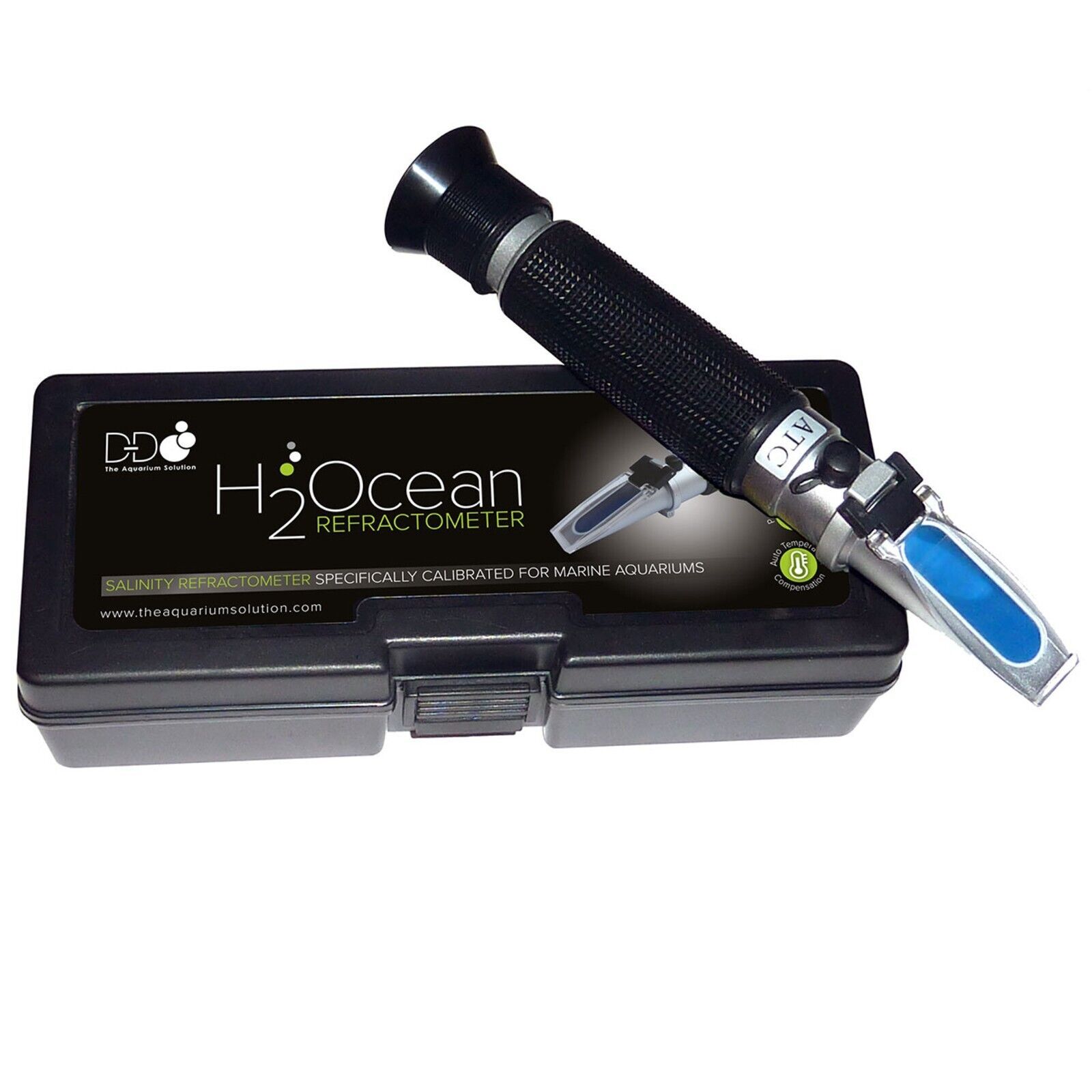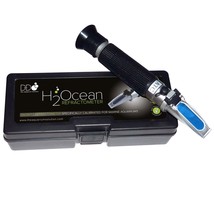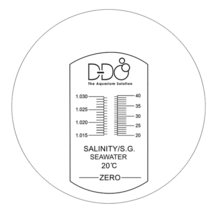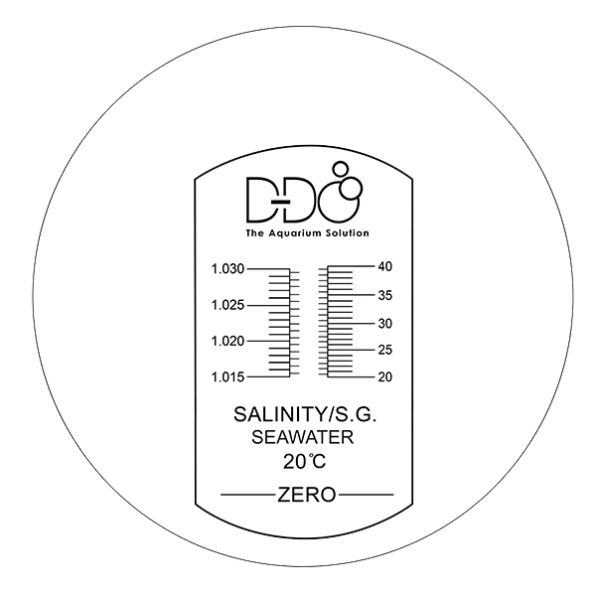Rendered at 03:49:56 07/23/25
Envío gratis
D-D Seawater Refractometer w/ Auto Temperature Compensation
$1,420.09 MXN
Los buques de
United States

Las opciones de envío
No hay precio de envío se especifica en MX
Los buques de
United States

Política de oferta
OBO - El vendedor acepta ofertas en este artículo.
Detalles
La política de devoluciones
Refunds available: See booth/item description for details
Protección de compra
Opciones de pago
PayPal accepted
PayPal Credit accepted
Venmo accepted
PayPal, MasterCard, Visa, Discover, and American Express accepted
Maestro accepted
Amazon Pay accepted
Nuvei accepted
Las opciones de envío
No hay precio de envío se especifica en MX
Los buques de
United States

Política de oferta
OBO - El vendedor acepta ofertas en este artículo.
Detalles
La política de devoluciones
Refunds available: See booth/item description for details
Protección de compra
Opciones de pago
PayPal accepted
PayPal Credit accepted
Venmo accepted
PayPal, MasterCard, Visa, Discover, and American Express accepted
Maestro accepted
Amazon Pay accepted
Nuvei accepted
Rasgos del artículo
| Categoría: | |
|---|---|
| cantidad disponible: |
3 En stock |
| Condition: |
New |
| Brand: |
D-D |
| UPC: |
5060078020091 |
Detalles del anuncio
| Las políticas del vendedor: | |
|---|---|
| Envío de descuento: |
Vendedor paga el envío para este artículo. |
| Publicado en venta: |
Más de una semana |
| Artículo número: |
1578170781 |
Descripción del Artículo
Be confident in your purchase we're an Authorized D-D Dealer. How cool is that?!?!?
What is different about the D-D Seawater Refractometer?
Almost all hand held salt water refractometers available to the hobby are designed and calibrated for the testing of brine solutions, i.e. sodium chloride, and are not calibrated for the refractive index of natural sea water.
Even though the largest percentage of salt in the sea is sodium chloride, the presence of other significant ions such as magnesium and calcium in natural sea water results in a different refractive index relative to that of brine. A standard salt (brine) refractometer will therefore not give the correct salinity for natural sea water (NSW) and a conversion factor must be applied.
For example a 35ppt solution of NSW has the same refractive index as a 36.5ppt solution of brine.
After extensive development, D-D?s new ATC refractometer addresses this issue as the scale is calibrated for seawater giving true salinity results for aquarium use when correctly calibrated and greater accuracy than previously attainable.
Our refractometers feature a copper internal body which conducts heat faster than cheaper aluminium and plastic versions for faster and more accurate auto temperature compensation.
Auto Temperature Compensation (ATC):
There is a lot of misunderstanding concerning the way the ATC feature works and its effect on the refractometer at different ambient room temperatures.
Salinity is a measurement of a mass of salt in a mass of water and therefore does not vary with temperature however a refractometer does not measure salinity directly but measures the refractive index which is then displayed as salinity. The refractive index of a solution does vary with temperature therefore the reading that you measure with a refractometer is always temperature dependant.
An ATC refractometer has a bimetal strip inside the instrument that moves the reading scale as the temperature changes to compensate for the change in refractive index. What people do not generally understand is that it is the temperature of the instrument and not the water temperature that is important as the small sample of water used for testing will equilibrate within seconds to the temperature of the refractometer.
Once correctly calibrated at the set calibration temperature of 20oC the refractometer can then be used in environments where the ambient temperature and therefore instrument temperature would heat up or cool down within the range of the ATC which is between 10 and 30 centigrade.
Calibration:
If you look at the scale above you will see that the refractometer states that it is calibrated at and displays the SG of seawater at 20C.
Most salt refractometers use this temperature and will be marked 20C or 20/20. Calibration should always be carried out with the instrument at 20C which is close to the average room temperature in most cases. Allow the refractometer to stand at this temperature for 30 minutes to equilibrate.
The D-D refractometer is designed with a copper body which is more expensive to manufacture but responds faster to ambient temperature changes than other materials.
Note that the refractive index is also dependant on the wavelength of light too and therefore a light source closest to daylight should also be used.
D-D refractometers are calibrated at 20C and so the calculated specific gravity at 35ppt displays a reading of 1.0266. This is the equivalent to a specific gravity reading of 1.0264 for a water sample temperature of 25C using a standard hydrometer that has a calibration temperature of 77F or 25C.
Added to your wish list!
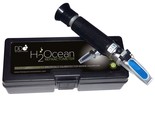
- D-D Seawater Refractometer w/ Auto Temperature Compensation
- 3 in stock
- Price negotiable
- Returns/refunds accepted
Get an item reminder
We'll email you a link to your item now and follow up with a single reminder (if you'd like one). That's it! No spam, no hassle.
Already have an account?
Log in and add this item to your wish list.


